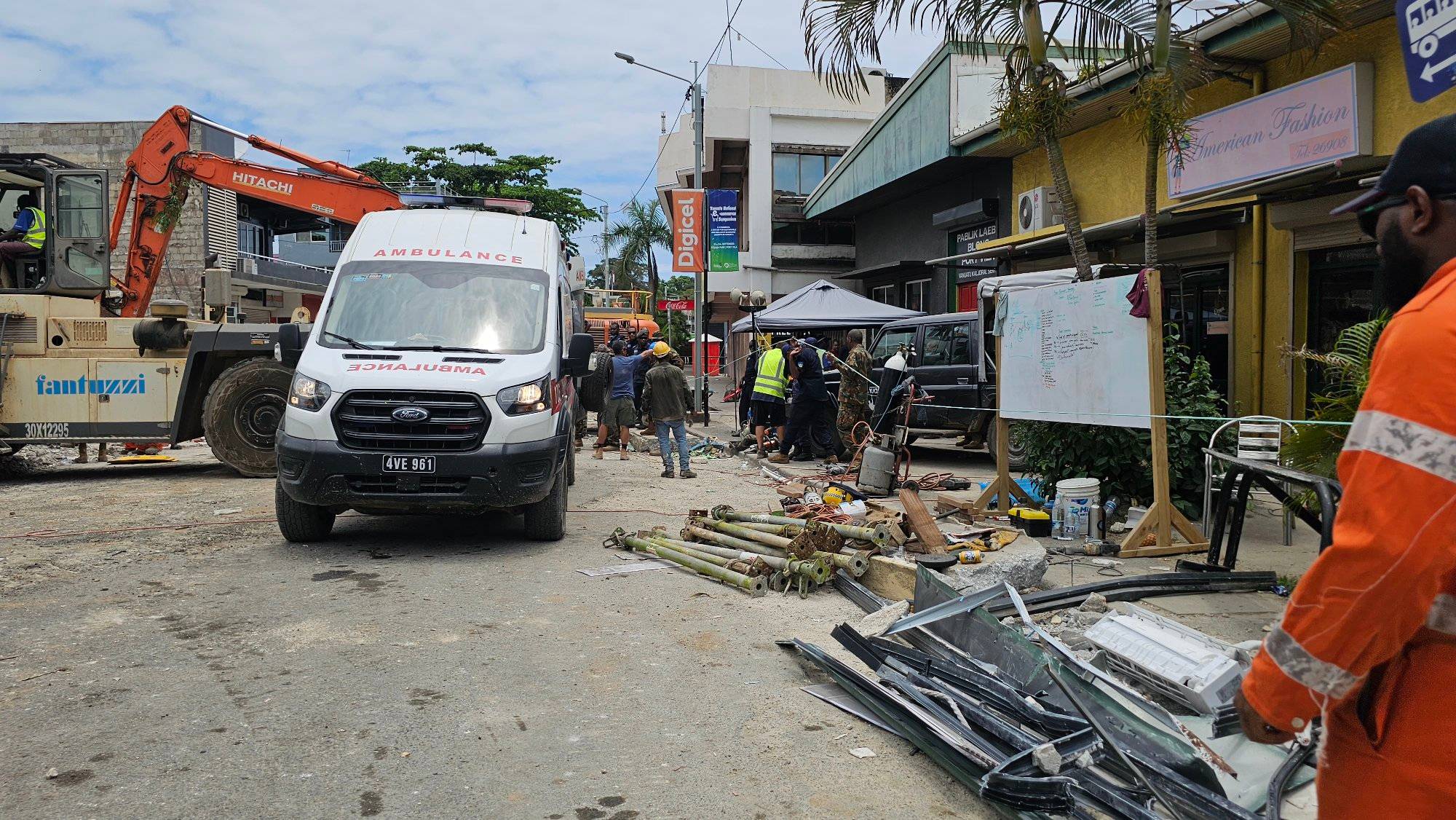World Vision’s Vanuatu country director says electricity and water are still affected in Port Vila and strategic bridges connecting the city are damaged, nearly 24 hours after a 7.3 earthquake just before 1pm Tuesday afternoon.
The city has had multiple aftershocks since, with the strongest on Wednesday morning reaching a magnitude 5.5.
At least 14 people are confirmed to have been killed and more than 200 people are injured.
World Vision’s Clement Chipokolo said the aftershocks are making everyone more vulnerable.
“We’re still out of electricity; we’re out of water as well and most of the stores are closed,” Chipokolo said.
“We have queues that are forming in the stores that are open for people to get essentials, especially water.”
He said the main priority is to recover those buried under rubble and recover bodies, while service providers were frantically trying to restore water and power.
“There are a number of compromised strategic bridges that are very essential for connecting the town those are the ones that I’m worried about for now.”
Chipokolo said phone lines are now up and running but there is no internet connectivity.
He said the public is starting to come to grips with what happened.
“I think we did not really gauge the scale of the impact, but now the public are sucking it in – how much we went through yesterday and by extension today”
Vanuatu is one of the most natural disaster-prone countries in the world and was hit by three severe tropical cyclones last year.
“We are a country that’s quite resilient to disasters but this was not a disaster that we anticipated or probably prepared for,” Chipokolo said.
However, he said the National Disaster Management Office (NDMO) which is the government arm that manages disasters, were on standby to support because of the cyclone season.
There are concerns about a lack of safe drinking water and Unicef Vanuatu Field Office Eric Durpaire said there has been an increase in cases of diarrhea.
There is no more water, electricity or internet, he said.
“So it’s very difficult to communicate and organise the response.”
Durpaire said a number of buildings have collapsed.
“It was a very very strong earthquake and Vanuatu buildings are not very strong.
“The next earthquake would be very problematic.”
The managing director of Vanuatu’s main utility company UNELCO, Frederic Petit, has told the national broadcaster VBTC electricity and water supply remains down around the capital Port Vila.
Petit said the electricity network sustained a lot of damage in the earthquake, with lines down around the city.
He said seven of the 23 electricity lines are out and UNELCO didn’t want to reconnect electricity supply to areas where it wasn’t safe.
“I won’t create distress where men, women and children have distress already,” he said.
He said there’s underground damage to water pipes, with three tanks being lost, but Port Vila’s pump station hasn’t been affected.
Petit is urging the public to save water as supply remains affected.
“This is my main concern, it’s water … because water is underground, and you don’t know where the leaks are,” he said.
Local businessman John Tonner said some rescue crews have now landed in Vanuatu.
“We’ve just had one or two aircraft land…with paramedics and rescue crews that are landing.”
He said aftershocks are still firm and consistent.
There was a “good percentage of shakes” throughout the night and people found it hard to sleep, he said.
“There’s substantial damage, infrastructure, buildings…from high end establishments to local houses.”
It will not be a quick recovery, he said .
“It’s a time we need to stand together and do the best we can for as long as it takes.”
Meanwhile, Vanuatu Tourism Office chief executive Adela Issachar Aru said authorities are advising people not to enter the town area in Port Vila.
“Pretty much the town area is out of bounds,” she tells ABC News Channel.
She said the tourism office is working with hotels and resorts, particularly those that need to evacuate their buildings.
“There was panic Tuesday during and after the incident,” she says.
“There is still panic as of this morning because families say they can still feel a bit aftershock,” he said.














